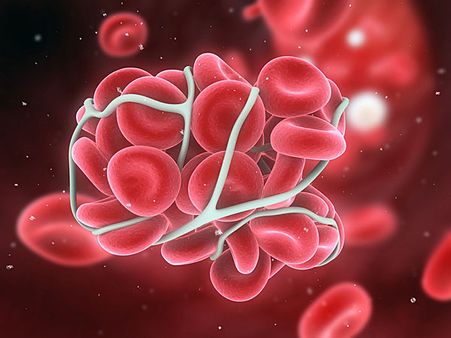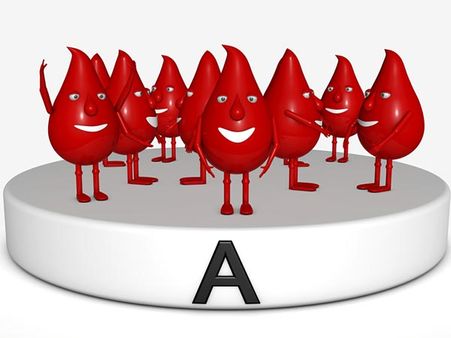Just In
- 1 hr ago

- 2 hrs ago

- 3 hrs ago

- 10 hrs ago

Don't Miss
- Finance
 Intraday Trade Call: Day Trading Stock Picks By Chandan Taparia Of Motilal Oswal On Thurday, 25 April
Intraday Trade Call: Day Trading Stock Picks By Chandan Taparia Of Motilal Oswal On Thurday, 25 April - Automobiles
 New Features Of The Ultraviolette F77 Mach 2: Uniting Performance, Safety, And Technology
New Features Of The Ultraviolette F77 Mach 2: Uniting Performance, Safety, And Technology - Sports
 IPL 2024: Why did Rishabh Pant Apologize to Cameraperson after GT victory?
IPL 2024: Why did Rishabh Pant Apologize to Cameraperson after GT victory? - Movies
 Aadujeevitham Box Office Collection Day 29 Prediction: Strong Overall Performance Amidst Recent Decline
Aadujeevitham Box Office Collection Day 29 Prediction: Strong Overall Performance Amidst Recent Decline - News
 Sonia Gandhi Shed Tears For Terrorists Killed In Batla Encounter: BJP Chief Nadda
Sonia Gandhi Shed Tears For Terrorists Killed In Batla Encounter: BJP Chief Nadda - Education
 JEE Main Result 2024 Out, Telangana's 15 Toppers Shine, Check Statewise List of 56 Candidates with Perfect 100
JEE Main Result 2024 Out, Telangana's 15 Toppers Shine, Check Statewise List of 56 Candidates with Perfect 100 - Travel
 Escape to Kalimpong, Gangtok, and Darjeeling with IRCTC's Tour Package; Check Itinerary
Escape to Kalimpong, Gangtok, and Darjeeling with IRCTC's Tour Package; Check Itinerary - Technology
 OPPO Find X7 Ultra Camera Deep-Dive: Pushing the Boundaries of Photography on a Smartphone
OPPO Find X7 Ultra Camera Deep-Dive: Pushing the Boundaries of Photography on a Smartphone
World Haemophilia Day: Surprising Facts On Haemophilia
Here are some of the most surprising facts on haemophilia that you must know.
There are a number of diseases that affect humans and among them are certain unfortunate disorders that do not have any cure. Haemophilia is one of them.
People suffering with haemophilia have no choice but to live with the disease and take various treatments to ease the symptoms, so they have to accept the fact that they have an incurable disease, which can obviously be rather hard.
Haemophilia is a genetic disorder in which the blood cannot clot normally, causing a number of various negative symptoms like extreme bruising, fatigue, blood in the stools and urine, nose bleeds, etc.
As haemophilia is genetic, the symptoms can show up in very young children, affecting their quality of life!
People with haemophilia often go through anxiety and depression, because of their condition.
Just like any other disorder, even haemophilia is surrounded by a number of myths and facts.
So, here are some of the surprising facts on haemophilia, which can help you understand the disorder better.

Fact #1
Haemophilia is caused by a missing protein in the body responsible for clotting the blood in a normal way.

Fact #2
A lot of people with haemophilia are known to get affected by AIDS, as they need frequent blood and plasma transfer.

Fact #3
Haemophilia is called a royal disease, as it was very common in many of the royal families of Europe in the 19th and 20th centuries.

Fact #4
Although haemophilia can affect both genders, surveys have found that this disease affects men more than women.

Fact #5
Women are usually carries of this disease, as in, if a woman gets haemophilia from her father, she can carry it in her genes and pass on the disease to her son, without being a victim herself.

Fact #6
Researchers across the globe are working on finding a permanent cure to haemophilia; however, it has not happened yet. There are effective treatments that can control the symptoms.
-
 wellnessWorld Haemophilia Day: Tips For Living Healthy With Haemophilia
wellnessWorld Haemophilia Day: Tips For Living Healthy With Haemophilia -
 nutritionWorld Haemophilia Day; Diet Tips For Haemophiliacs
nutritionWorld Haemophilia Day; Diet Tips For Haemophiliacs -
 wellnessWorld Haemophilia Day: Herbs That Help Cope Up With Haemophilia
wellnessWorld Haemophilia Day: Herbs That Help Cope Up With Haemophilia -
 wellnessWorld Haemophilia Day : Tips To Stay Mentally Strong When You Have Haemophilia
wellnessWorld Haemophilia Day : Tips To Stay Mentally Strong When You Have Haemophilia -
 wellnessWorld Haemophilia Day: Lifestyle Remedies For Haemophilia
wellnessWorld Haemophilia Day: Lifestyle Remedies For Haemophilia -
 wellnessWorld Haemophilia Day; Precautionary Measures Every Haemophiliac Needs To Take
wellnessWorld Haemophilia Day; Precautionary Measures Every Haemophiliac Needs To Take -
 healthWorld Haemophilia Awareness Day 2024 Wishes: Greetings, Messages, Texts, Images, Twitter And Instagram Status
healthWorld Haemophilia Awareness Day 2024 Wishes: Greetings, Messages, Texts, Images, Twitter And Instagram Status -
 diet fitnessWorld Haemophilia Day: Haemophilia Nutrition Tips - Foods To Eat And Avoid
diet fitnessWorld Haemophilia Day: Haemophilia Nutrition Tips - Foods To Eat And Avoid -
 disorders cureWhat Is Haemophilia? Its Causes, Symptoms, Complications, Diagnosis & Treatment
disorders cureWhat Is Haemophilia? Its Causes, Symptoms, Complications, Diagnosis & Treatment -
 insyncApril Fool's Day 2024: Strange And Unusual Pranks That Were Pulled Off On 1st April
insyncApril Fool's Day 2024: Strange And Unusual Pranks That Were Pulled Off On 1st April -
 insyncWorld Water Day 2024: Water Is A Lifesaver Or Killer? 10 Points To Remember About Its Dual Nature
insyncWorld Water Day 2024: Water Is A Lifesaver Or Killer? 10 Points To Remember About Its Dual Nature -
 insyncInteresting Facts About the Blue Whale, The Largest Animal On The Earth
insyncInteresting Facts About the Blue Whale, The Largest Animal On The Earth


 Click it and Unblock the Notifications
Click it and Unblock the Notifications





